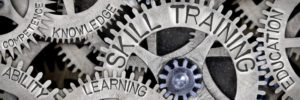Recent challenges, including the pandemic and changes within HE, have had a dramatic impact on undergraduate teaching, future skills needs and the world of work. The IOP’s recent new research on the critical role of physics skills reveals that while they underpin productive industries in every part of the UK, there is still significant unmet demand for these skills, which is impacting employers’ ability to grow and innovate.
In this context, SEPnet and WRIPA are hosting a one-day workshop to explore how physics teaching and assessment can change to equip students from all backgrounds with the skills and knowledge for future labour markets.
PROGRAMME
09.30 Registration and coffee
10.00 Welcome – Professor Sir William Wakeham
10.10 The new IOP accreditation process – more flexibility in curriculum design
- How do we get the balance right between employability, skills and academic rigor and encourage innovation while also ensuring compliance with accreditation? Are they two different things?
Robyn Henriegel, Accreditation & Professional Standards Manager, Institute of Physics
10.35 Effective blended and hybrid learning in HE
- How do we support staff in adopting inclusive and engaging teaching practices that promote success for all students?
Dr Catherine (Kay) Hack, Principal Adviser (Learning & Teaching) Advance-HE
11.00 Round table discussions and coffee
11.30 Learning from Engineering
- Can we equip physics students with problem-solving, resilience and teamworking skills through real-world group projects?
- How do we avoid siloed learning? Is programme-level teaching or portfolio assessment the answer?
Professor Danielle George, Associate VP & Professor of Radio Frequency Engineering, University of Manchester
11.55 How we deliver effective online learning
- Can technology be used to replace experimental work in the first two years of a physics degree?
- How does online learning design in modular physics teaching enhance the student experience, employability outcomes and close disability gaps?
- What impact does tuition and assessment strategy have on outcomes in level 1 / 2 physics modules?
Dr Helen Jane Fraser, Director of Research and Senior Lecturer in Astronomy, School of Physical Sciences, The Open University
12.20 Round table discussions and questions
12.50 Lunch
13.35 How do we assess now?
- How have departments modified assessments following the loss of invigilated tests and examinations?
- What interventions and new ideas will transform assessment?
Dr Nicolas Labrosse, Senior Lecturer (Physics & Astronomy), University of Glasgow
14.00 How to implement a physics-related micro placement module into a physics degree
- Focusing on the benefits for both students and employers
Dr Samantha Pugh, Associate Professor in STEM Education, University of Leeds
14.25 How can we diversify our physics intake?
- Can data become a barrier to progress?
- Tackling the gender and attainment gap.
Professor Brad Gibson, Head of Department of Physics & Mathematics, University of Hull
14.50 Tea
15.05 Working with businesses to improve the employability of under-represented students in STEM
- How are universities supporting disabled students to find jobs?
- How do we prepare under-represented students for the labour market?
- Engaging students and breaking down barriers
Emily Huns, Head of Careers & Entrepreneurship, University of Sussex
15.30 Round table discussions and chairperson’s summary
16.00 Close of proceedings
| IOP Accreditation | https://www.sepnet.ac.uk/wp-content/uploads/2022/07/IOP-Degree-Accreditation-Framework.pdf |
| Dr Hack | https://www.sepnet.ac.uk/wp-content/uploads/2022/07/IOP-Flexible-sustainable.pdf |

